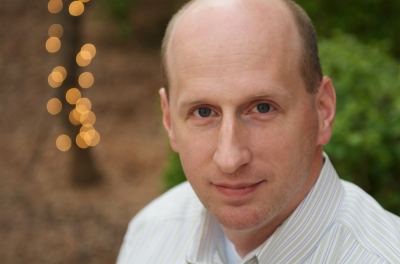American Sniper Has Created a Cultural Moment: Here's Why

At 9:30 p.m. on Saturday night, a packed theater in Franklin, Tenn., was completely quiet. As the credits rolled, some folks were filing out, but many more were standing, still looking at the screen, honoring the man whose life they'd just seen portrayed on the silver screen.
Before the movie, I'd never seen the parking lot so crowded. I had to park more than a quarter-mile away, hidden in the corner of a restaurant parking lot (hoping I wouldn't be towed), and watched in amazement as people were streaming into the theater from parking spaces scattered far and wide. It almost goes without saying when a January movie release breaks $90 million in three days, but I felt as if I was witnessing an important cultural moment. This movie was striking a chord in America beyond any post 9/11 movie — beyond even the best of movies about the War on Terror, including Lone Survivor. I think I know why.
First — and most important — it's a phenomenal movie. America is awash in "message movies," left and (recently) on the right. While there are some people who'll attend movies just to make a statement, most of us want to see good movies, with the right statement merely an optional bonus. American Sniper is better than good. It's one of the best war movies I've ever seen, and is now in the pantheon of my all-time favorite movies of any type. Bradley Cooper is outstanding, and the movie pulls off something I've never truly seen in a war film: It creates fully realized characters both inside and outside the combat environment. By the end of the movie, we feel that we understand who Chris Kyle was, who is wife is, what they endured, and what motivated them. They're not one-dimensional heroes but fully realized people who did heroic things.
Second, it tells a story that America isn't told. I've beaten this drum for a while now, but one of my core criticisms of movies about the War on Terror is that they flinch — not when telling of the horrors of war for American soldiers — but when describing the true nature of the enemy. American Sniper goes where no movie has gone before in showing how the enemy uses children, kills children, and savagely tortures its enemies (Kyle discovers a torture room in Fallujah, and its portrayal is very close to reality). The movie isn't excessively grisly (so wide audiences can see it), but one doesn't need to show the close-up of a terrorist killing a young boy with a power drill to understand what just happened. When Kyle describes the enemy as "savages," you know exactly why, and you agree with him.
But it's not just telling the story of the enemy, but also of a key reality about our soldiers that many Americans don't get. Of course war is horrifying. There are real consequences in PTSD and survivor guilt, and for tens of thousands there are real consequences in enduring physical wounds. Your psychological reality can essentially "flip" for a time so that you become a better functioning warrior than you are husband or father (in one telling moment, Kyle lands back in Iraq for yet another deployment, and a fellow SEAL tells him "welcome home"). But here's the thing: The vast majority of soldiers get through that trauma and emerge on the other side, often better men. At the end of the movie, we see a Chris Kyle who is a good husband and father — who is truly "home" — extending his mission of helping his brothers by helping them heal.
This is an important story. Yes, there is grief that endures. And, yes, there are often wounds that won't fully heal. But there is also fierce pride in service, new insights on life and our world, new appreciation for the blessings of liberty and the love of family, and many other perspectives and experiences that enrich the lives of veterans and veterans' families. It was just as critical to see Chris Kyle heal as it was to see him suffer.
Finally, the movie gives America something it's lacked since the start of the war — a war hero on a truly national, cultural scale. Yes, we've learned the stories of Marcus Luttrell and others who've achieved great and heroic things, but with the success of this movie, Chris Kyle has entered the pantheon of American warriors — along with Alvin C. York and Audie Murphy — giving a new generation of young boys a warrior-hero to look up to, to emulate. After all, our kids' heroes can't be — must not be — exclusively quarterbacks, rappers, or point guards.
No one is claiming that Chris Kyle is Jesus. Every human being has flaws. And he risked no more and no less than the thousands upon thousands of anonymous soldiers and Marines who fought house-to-house during their own turns downrange, but he undeniably did his job better than any man who came before him — or any man since — and he did that job as part of his selfless service to our nation. I'm thankful that my own son counts Chris Kyle as a hero.
Leftists such as Michael Moore will rage on, and professors will judge the movie without seeing it — and all that backlash may cost the movie an Oscar — but Clint Eastwood has done something far greater than win an Oscar. He reached a great nation with a story it needed to hear.




























